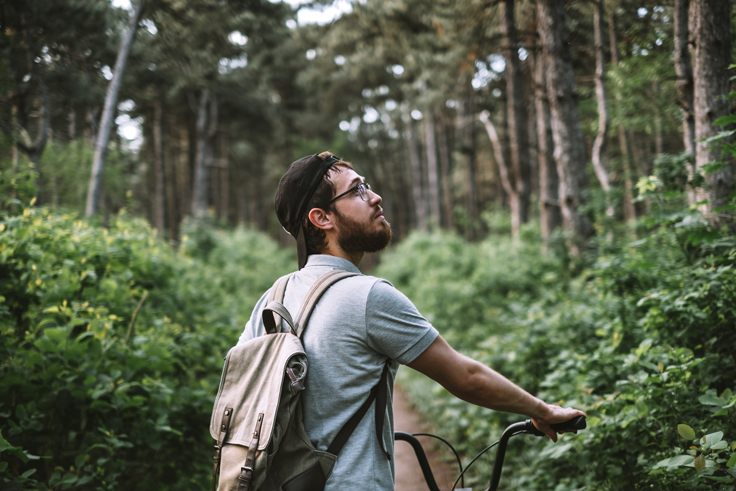
You have been doing great. Your treatment went perfectly, and you were heading in the right direction. You had gotten a job, had reconnected with loved ones, and had been without heroin for almost a year. And then familiar stresses started to come back. Your finances began to suffer. Family relationships started to feel strained. You couldn’t remember the last time you participated in a support group meeting or even used the skills you learned in treatment.
The temptations of before were weighing on your mind. Before knowing what happened, you had found your way back to heroin. A wave of immense guilt followed that usage, and you wondered if you could ever be free from the chains heroin had on you. You wonder if fully recovering from heroin is possible.
The good news is that recovery is still possible even after returning to use (commonly known as “relapse”). In Tennessee, approximately 70,000 Tennesseans have a heroin use disorder. If all of these people sought treatment, an average rate of 40-60% would experience a relapse. While this percentage might seem high, it doesn’t mean that recovery has failed for any of those who experience it. At ReVIDA® Recovery, we know that experiencing a relapse simply means that an adjustment to your recovery needs to be made. This is why we always welcome people back when they need additional support or when they’ve returned to use.
Table of Contents
Does Heroin Use Disorder Come With a High Chance of Relapse?
Returning to use isn’t something that happens overnight. There is a good chance that various circumstances led to someone picking heroin up again. Return to use typically occurs in three stages: emotional, mental, and physical. At the emotional and mental stages, preventing a relapse from occurring is more possible. While preventing relapse at the physical stage is not necessarily impossible, it is much harder. This is because, at the physical stage, you have likely already decided to use heroin again. Learning the signs of the earlier stages of relapse can help lower the chances of relapse.
Returning to use happens for various reasons from psychological to spiritual and everything in between. However, one of the biggest reasons you experience a relapse with heroin is because you have become dependent on it. The longer you take heroin, the more likely you want to fall back on it when daily stresses enter your life. If you don’t actively participate in learning healthy coping skills and techniques learned in support groups or therapies, you will be more likely to turn back to heroin when stressful situations arise.
Heroin Relapse: Stages and Signs
Because a heroin relapse occurs in three stages, it is important to understand signs to look out for at each stage. Recognizing a relapse before it gets to the third stage is your best chance of avoiding one. However, recovery from heroin use disorder is still possible, no matter the stage you’re in, and all hope is not lost.
The first stage of heroin relapse is the emotional stage. In this stage, which typically occurs right after withdrawal, you don’t think about using heroin. You might have yourself convinced that you won’t use heroin again. However, your emotions or behaviors might be heading in a different direction. Some signs to look out for in the emotional stage of returning to use include not asking for help, not going to meetings, isolation, and mood swings. This stage is the easiest to return from, and you will probably spend the most time here. It often requires self-care and simple reminders that you are in a relapse stage and must change your behaviors.
The second stage of relapse is the mental stage. At this stage, you are considering using heroin. You haven’t made an active decision yet, but the thought has crossed your mind multiple times. Some signs that you are in the mental stage of relapse include fantasizing about heroin, spending time with your old friends who are still using, glamorizing your past use, or planning to use again. It is harder to stop the pullback toward heroin at this time. It is not impossible, but still difficult. This stage might require you to consider what happens if you follow your thought patterns. Ask yourself, “If I use heroin again, even once, what happens after? What will my behaviors, thoughts, and emotions be if I follow these thoughts?”
You might also need to distract yourself or tell a trusted support person. Getting help at this stage is important to prevent a relapse, as you might not have much time before entering the third stage.
The third stage is the physical stage where you have already decided to use heroin. While it is possible you could still avoid heroin, you would have to work quickly because at this stage you have already decided to use it again. You would be in crisis now, and finding a place with same-day appointments would benefit you.

Why Does Relapse Happen?
There are various reasons why relapse happens. At the moment, it might feel like it is a singular reason, but it is more than likely multiple reasons that have piled on top of each other leading to the relapse of heroin. Discovering the reasons leading to a relapse before it happens is the best way to prevent a relapse from occurring. Some things that might cause a relapse include:
- Connecting with old friends that still use heroin
- Uncomfortable emotions such as being angry or lonely
- Stressful relationships or situations
- A belief that your heroin use doesn’t impact you anymore
- Withdrawal symptoms such as poor sleep, anxiety, and irritability
- Being in places where you used to buy or use heroin
- Isolation from your support system
Who Relapses From Heroin Use Disorder?
A relapse can happen at any point in your recovery process, but most happen within one year. Remember that having a relapse from heroin does not mean that your recovery is not possible. The rate of experiencing a heroin relapse can be as high as 95%. This rate is for those who have used heroin for several years, maybe even decades. Someone who has not consumed heroin for several years is less likely to fall back to it because their body isn’t as dependent on heroin to get them through stressful times. Also, if you start to fall out of staying on top of your recovery, you are more likely to relapse. Not participating in your treatment because you believe you are doing well and heroin is behind you can be a dangerous thought and lead to a relapse that ends with dependency again.
People who experience a relapse are more likely to experience a heroin overdose. This is because as your body has removed heroin and is no longer getting it daily, you lose tolerance. Many people will take the same amount they took before, but their bodies can no longer handle it, leading to an overdose.
Preventing a Relapse: What to Look Out For
The easiest stage to prevent a return to use is the emotional stage. One sign to look out for when wanting to prevent relapse is if you are isolating from people. You might also not ask for help or go to meetings or appointments. You might have feelings of anxiety, anger, or intolerance. If your self-care is starting to deteriorate, you might be on the path to relapse. As you enter the 2nd stage of relapse, you will begin to think about retaking heroin. These thoughts are not active. At this stage, you will not have a guaranteed plan of getting heroin, but you might be starting the planning process. In the 3rd stage, you have made an active plan. This stage is the hardest to prevent returning to use, and you should consider revisiting treatment.
Heroin Withdrawal and Relapse Prevention
When you regularly use heroin, you build a tolerance for its effects. This means you will need more heroin just to get the same effect you had the first time you used it. When you stop using heroin, you will experience heroin withdrawal symptoms. These symptoms can include:
- Cravings
- Sweating
- Hot flashes
- Fever
- Irritability
- Unpredictable moods
The best way to prevent relapse from occurring is to be aware of where you are in your recovery journey. Are you still, months later, actively participating in your recovery?
While you might not attend a facility, you should still incorporate your treatment plans into your everyday life. These include any medications you might still be taking or skills found in cognitive behavioral therapy (CBT). These are meant to be tools to help you along your recovery journey outside of initial heroin use treatment.

Treatment For Heroin Use in the Appalachia Area
Participating in heroin use is dangerous. Not only is the chance of overdose high, but it can also cause other heroin side effects. These can include nausea, sedation, liver disease, and depression. Some signs of a heroin use disorder include financial problems, legal problems such as theft or possession, and constant thoughts of heroin. Remember that recovery is still possible. It doesn’t matter if you have never gone through treatment or have been through it dozens of times. Learning or relearning skills found in CBT, which teaches you to recognize and manage your thoughts, can benefit anyone at any point in their journey.
ReVIDA® Recovery has several locations throughout Tennessee and Virginia to serve our Appalachia communities. We strive to help you find a job, apply for aid, or prepare for custodial proceedings. We’re here to help you reclaim your life from heroin. For more information, call us today at 423-631-0432.
FAQs
Which stage of addiction is associated with relapse?
The stage of heroin use disorder that is associated with relapse is recovery.
What are the three most common triggers for relapse from substance abuse?
Three of the most common triggers for relapse include stress, spending time with old friends who still use, and believing that you are past your substance use disorder.
What is the most common time of relapse?
Most relapses occur within 1 year of treatment with most occurring within 90 days of ending treatment.









